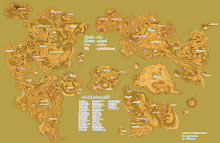Lottery games for centuries. A variant of the Bingo was invented in the late 1800s, but the Romans played the numbers long ago. The biggest difference between then and now is the cost of the game and the size of the payout for the win. Even the most loyal anti-gambling law to admit, intrigued by the prices. Because the risk of one U.S. dollars per person can win millions. Unfortunately, as we all know, not everyone is willing to stop for one U.S. dollars. HorrorStories, and hopefully mostly just stories, rich with the welfare of families spend all their income to buy tickets.
Who are the winners? Was it ever happen that someone reduce one hundred U.S. dollars or more tickets the chances? I have not heard of one, but I know that a woman stole forty million U.S. dollars, if an employee a five-dollar bill refused her as she could to change the bus. Determined, they change, they bought a Powerball ticket. (I hope later she returned andplanted a big kiss on the head of Downer is.) one of the winners read a book she tells how the numbers? How many of her own birth, or their spouse or the two together? Or they have their phone numbers or use in a Fortune Cookie? To my knowledge, all but one of the winners of the lottery computer to the numbers for them. The only major exception was renowned. Have bought a faithful man in Chicago, the same number for the Illinois lottery to the same supermarketStorage for one years. One day, the number was. And guess what? He could not find his ticket! After getting to know its history and the fact that nobody else claimed the prize, the Lottery Commission magnaminously award the prize to him. It was the first and last time, it would never happen. Now you must present the claim of winning the game to train your profits.
The point is, the chances of you're incredible. Imagine, if you will, a one hundred meters long sandy beach with exactly oneStone, which differs from all others. Even if it looks different, what do you think your chances are of finding it?
So who cares, you say. I play anyway.
Suppose you want numbers. Which of the two listed below would you say is less likely: 1, 2, 3, 4, 5 pm to 6 pm or 22, 34, 39, 40, 46, 48 and 55 years. Niney-nine of one hundred people would be 1, 2, 3 have said, so it is less likely because the first six numbers in our system so far and we think aConnection between them. This connection is likely to translate into a bias against proposals to play them. But the truth of the matter is, no more or less likely than the others. The question is whether there is a concrete contribution to this trend. Surprisingly there. But likely a very long time. maybe even billions of years. Sooner or later, an infinitely long time span of 1, 2, 3, etc. will be made trough the machine. When the biasremained to be decided, no one has the right numbers. (Never mind that the computer would have them, someone selected.) In short, over a sufficiently long period, even the smallest disturbance, an important difference.
For the people, the books about picking winning numbers, as many authors claim have purchased a foolproof way of selecting the figures? Of course they win or not, would be hundreds of people every week. What they say they can increase your chances of pickingthe correct numbers. My question is how they know that this is the case? Are the five have played non-winning numbers from the book for the winners instead of the millions of other combinations that have not won? If so, what is the process by which these probablilities determined and how can it be proven?
Finally we return to the possible practical significance of even the smallest disturbance. I study the Powerball winning numbers for the competition for workpast ten years. (I will research this for themselves.) Instead of numbers uniformly distributed over the entire area, people who have appeared much more frequently than others. Mathematicians who study probability say that this is a good proof of true randomness. Anyway, the question is: If someone who only played songs, they more likely to win? Probably not. Past performance can not predict events in the future. Even so, it is also aslightly more likely that these figures would actually occur more frequently in the future than another?
Maybe. The reason could be to the mechanics of how the numbers are chosen. The machine and the ping-pong balls bounce the bubbles before they were able to contribute from their own small bias of the slide. What happens if some of those balls were infinitely easier or harder than the others? Or is it possible that the laws of the opportunity to choose certain songs more frequently thanothers? You never know. But even an infinitely small increase your wealth, reduces or two of the six numbers to predict your chances of millions. Is the small increase in value of money at stake? That is up to you. In a few words, a bit of research looking at the multi-million chances to reduce a little. Who knows. It can be enough to help you choose a winner.
Copyright 2005 by John Anderson
See Also : Soccer Strategies

No comments:
Post a Comment